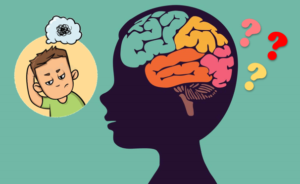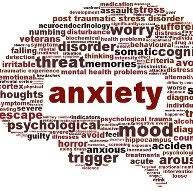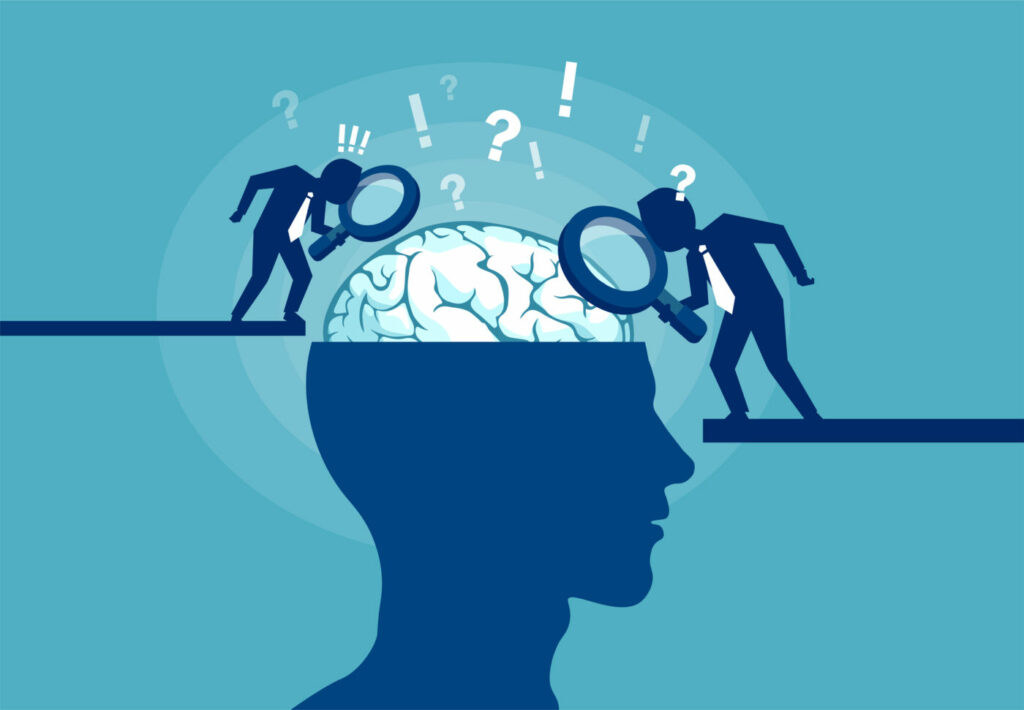Short-term memory loss is usually linked to a traumatic brain injury, but may also be caused by other factors including Alzheimer’s disease, depression, and epilepsy. Memory loss can be the result of anything from a concussion to severe hypertension, so it’s important to identify the source of your condition as soon as possible.
Contents
What Is Short Term Memory Loss?

Short-term memory loss (STML) can be defined as a decline in an individual’s ability to remember newly acquired information over a period of time that is typically measured in minutes or hours. This condition can be caused by a number of factors, including head injury, stroke, and Alzheimer’s disease.
People with short-term memory loss may have difficulty recalling recently learned facts or retaining new information for any length of time. They may also experience difficulty completing tasks that require concentration or focus. In some cases, people with short-term memory loss may forget where they are or what they were just doing.
Symptoms Of Short Term Memory Loss
Some common symptoms of STML include-
- forgetting people’s names
- forgetting what you were just talking about
- being unable to remember important dates or events
- having trouble completing complex tasks
- feeling like you’re constantly in a fog
Causes Of Short Term Memory Loss
 There are many different causes of STML, including-
There are many different causes of STML, including-
- Head injury: A head injury can cause damage to the brain that may lead to memory loss.
- Stroke: A stroke can interrupt the blood supply to the brain, leading to tissue damage and memory loss.
- Alzheimer’s disease: Alzheimer’s is a progressive neurological disorder that damages cells in the brain, leading to memory loss and other cognitive impairments.
- Medication side effects: Some medications may cause memory loss for a while as a side effect.
- Vitamin deficiency: A lack of certain vitamins and minerals, such as vitamin B12, can lead to memory loss.
- Alcohol abuse: Excessive drinking can damage the brain and lead to memory loss.
- Stress: Stress can take a toll on the body and lead to memory loss.
- Lack of sleep: Not getting enough sleep can impair cognitive function and lead to memory loss.
- Vitamin B12 deficiency: A lack of vitamin B12 can lead to memory loss.
People with short-term memory loss should consult with a healthcare professional to determine the underlying cause of their condition and receive appropriate treatment.
Effects of Short Term Memory Loss

People with short-term memory loss may find it difficult to complete tasks that require concentration or focus. In some cases, they may forget where they are or what they were just doing. Additionally, people with short-term memory loss may experience difficulty retaining new information.
Effects On Work and School
People with short-term memory loss may have difficulty recalling recently learned facts or retaining new information for any length of time. They may also experience difficulty completing tasks that require concentration or focus. In some cases, people with short-term memory loss may forget where they are or what they were just doing.
Due to these challenges, people with short-term memory loss may find it difficult to work or attend school. They may need to ask for help completing tasks or taking notes during class. Some people with short-term memory loss may also need to use a reminder system to keep track of important dates and events.
Effect On Relationship
People with short-term memory loss may find that they are unable to remember important details about their partner or spouse. They may also forget what they talked about during previous conversations. This can cause tension and conflict in the relationship.
People with short-term memory loss should talk to their partner or spouse about ways to help them remember important information. They may also want to consider using a reminder system to keep track of important dates and events.
Difficulty Completing Task
People with short-term memory loss may experience difficulty completing tasks that require concentration or focus. In some cases, they may even forget where they are or what they were just doing. Additionally, people with short-term memory loss may experience difficulty retaining new information.
Preventions Of Short Term Memory Loss

There are several things people can do to help prevent short-term memory loss, including:
- Getting enough sleep– Getting enough sleep is essential for cognitive health and can help prevent short-term memory loss.
- Taking breaks during extended periods of focus– People should also try to take breaks during extended periods of focus, eat a healthy diet, and avoid excessive drinking.
- Exercising regularly– Exercise has been shown to improve cognitive function and may help prevent short-term memory loss.
- Practicing stress-relieving activities– Stress can take a toll on the body and lead to short-term memory loss. People should practice stress-relieving activities, such as yoga or meditation, to help reduce stress levels.
- Eating a healthy diet– Eating a healthy diet is important for overall health and may help prevent short-term memory loss.
- Taking vitamin B12 supplements– A lack of vitamin B12 can lead to short-term memory loss. So people who are at risk for a vitamin B12 deficiency should consider taking a supplement.
- Avoiding excessive drinking– Excessive drinking can have negative effects on the body and may lead to short-term memory loss.
- Reducing stress levels– Stress can take a toll on the body and lead to short-term memory loss. Therefore people should practice stress-relieving activities, such as yoga or meditation, to help reduce stress levels.
- Avoiding recreational drugs– Recreational drugs can have negative effects on the body and may lead to short-term memory loss.
There are many different ways that people can deal with memory loss. In some cases, people may need to consult with a healthcare professional to determine the underlying cause of their condition and receive appropriate treatment. There are also several things
If a person is experiencing it, they should consult with a healthcare professional to determine the underlying cause and receive appropriate treatment.
Treatment For Short-Term Memory Loss

There is no one-size-fits-all answer for the treatment of short-term memory loss. However, some common strategies include:
1. Exercising regularly – Exercise has been shown to improve cognitive function overall, including memory.
2. Practicing mindfulness – Mindfulness has been shown to improve focus and attention, which can help with memory recall.
3. Taking breaks – When you’re trying to remember something, it can be helpful to take a break and come back to it later. This gives your brain time to process the information.
4. Using mnemonic devices – Devices such as acronyms or rhymes can help you remember information more easily.
5. Stimulating the brain – Activities such as puzzles, reading, and playing games can help keep your brain active and improve memory function.
6. Eating a healthy diet – A diet rich in fruits, vegetables, and whole grains is good for overall health, including cognitive health.
7. Taking supplements – Some people find that supplements such as omega-3 fatty acids or ginkgo Biloba help improve memory function.
8. Seeing a doctor – If you’re experiencing significant memory loss, it’s important to see a doctor to determine the cause and get appropriate treatment.
There are many different strategies that can help improve short-term memory. By finding the strategies that work best for you, you can help keep your memory sharp.
Therapies For Short Term Memory Loss

There are many different types of therapies. Some of these therapies include:
1. Stimulation therapy: This therapy involves providing stimulation to the brain in order to improve cognitive function. It includes activities that can provide stimulation including puzzles, games, and physical activity.
2. Memory training: This therapy involves learning strategies to improve memory function. Techniques that can be used include organization, chunking information, and creating mnemonic devices.
3. Cognitive rehabilitation: This therapy is designed to help people with cognitive impairments adapt to their environment. It also includes strategies for problem-solving, decision-making, and coping skills.
4. Medication: There are a number of medications that can be prescribed to help improve memory function. These medications also include cholinesterase inhibitors, memantine, and anticonvulsants.
5. Puzzles & games: Therapies for short-term memory loss can include various activities, such as puzzles and games. These therapies are designed to stimulate the brain in order to improve cognitive function. However, it is important that you speak with your healthcare professional about which therapy will work best for you based on your needs. Because chances are there’s a therapy out there just waiting for you!
Each of these therapies has its own benefits and drawbacks. So it is important to work with a healthcare professional to determine which therapy is right for you.
Conclusion
As you can see, there are many factors that affect the ability to remember. And the more we learn about how short-term memory loss happens in the brain, and what aspects of it can be improved upon with training or other interventions, the better equipped we will all be at overcoming this debilitating condition.
A Word From Therapy Mantra
Your mental health — Your psychological, emotional, and social well-being — has an impact on every aspect of your life. Positive mental health essentially allows you to effectively deal with life’s everyday challenges.
At Therapy Mantra, we have a team of therapists who provide affordable online therapy to assist you with issues such as depression, anxiety, stress, workplace Issues, addiction, relationship, OCD, LGBTQ, and PTSD. You can book a free therapy or download our free Android or iOS app.


